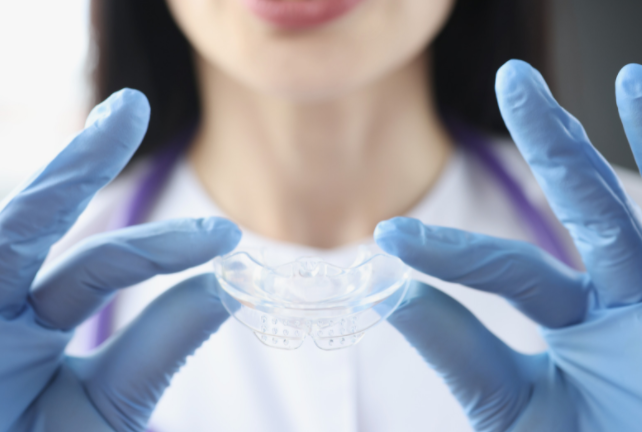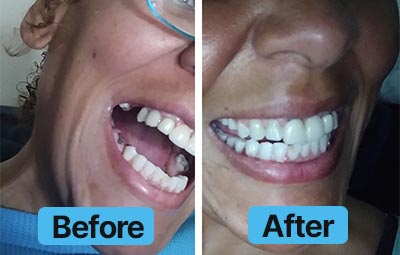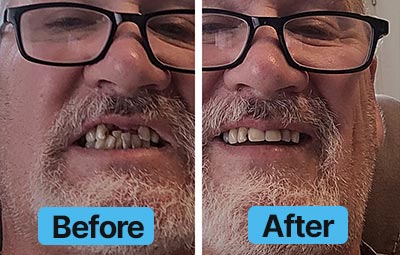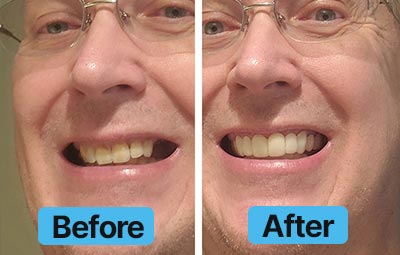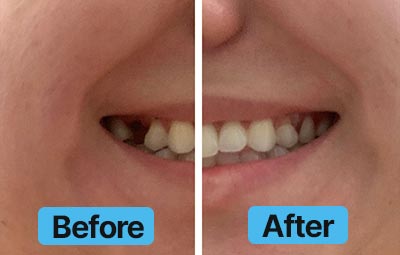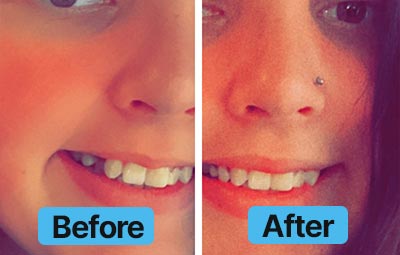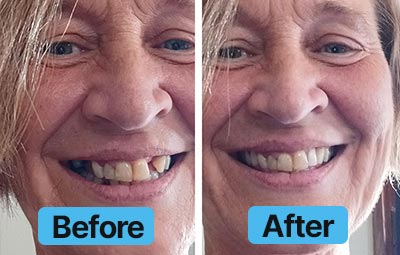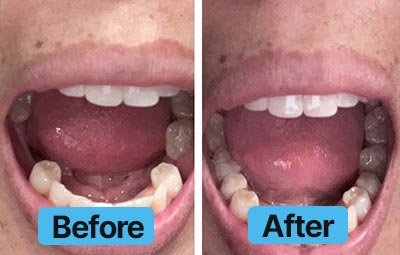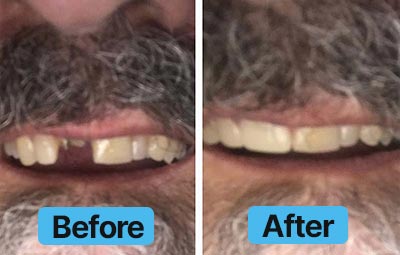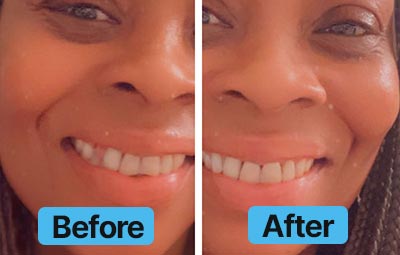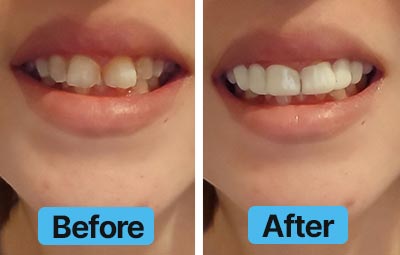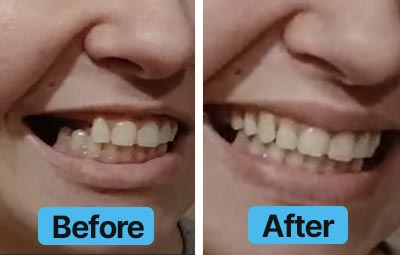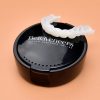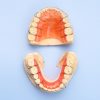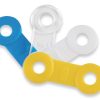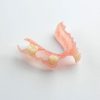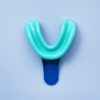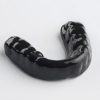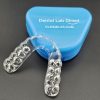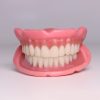After wearing a nightguard for an extended period of time, you may notice white spots begin to emerge on the surface. These white spots are calcium buildup. While this is common, calcium buildup on a nightguard is also a sign that you need to clean your nightguard more regularly.
What is Calcium Buildup?
Calcium buildup appears as crusty, hard white spots on the interior surface of a nightguard and can be alarming if you’ve never encountered them before.
These spots are formed by the naturally occurring bacteria in your mouth. Every time the nightguard is inserted into your mouth, some of the bacteria transfer to the nightguard. These bacteria then combine with your saliva, plaque, and tartar and begin to form these hard, calcified spots on the surface of the nightguard.
If they are left on their own, these calcium spots can become so large that it actually becomes difficult to get a nightguard to sit properly within your mouth. Because of this, it’s important to take care of calcium deposits as soon as they start to form before it becomes difficult to properly use your nightguard.
Who Wears Nightguards?
Nightguards are typically worn by individuals who experience certain dental or oral health issues, primarily during sleep. These guards are customized dental appliances designed to protect the teeth and sometimes the jaw from various conditions and habits.
Additionally, teeth grinding can pose a challenge for individuals who have undergone orthodontic treatment with retainers. If someone grinds their teeth at night, they may need to consider wearing a nightguard.
This dual-purpose appliance not only safeguards their teeth from the damaging effects of bruxism but also helps protect the integrity of their retainers. The constant pressure exerted during teeth grinding can potentially compromise the durability and effectiveness of the retainer, making the addition of a nightguard a prudent choice.
How to Remove Calcium Buildup on a Nightguard
To address deposits on your nightguard, start by attempting to remove the buildup before considering replacement to save costs.
Create a solution of one part vinegar to three parts water. Soak the nightguard in this mixture for 10-30 minutes, depending on the level of calcium buildup. Afterward, scrub it vigorously with a soft-bristled toothbrush to eliminate the deposits and rinse in cool water. Allow the nightguard to air dry fully before reuse.
But if calcium deposits persist or hinder proper nightguard use, replacement is likely necessary. Continuing to use a nightguard with extensive calcium buildup can harm both the retainer and your teeth, altering the fit and promoting bacterial growth, which poses oral hygiene risks.
Combatting Calcium Buildup: How to Clean a Nightguard
However, the best way to get rid of calcium buildup is to prevent it from forming in the first place.
It’s important that you brush your teeth regularly with toothpaste to remove the food particles left behind after eating and to curb the growth of bacteria in your mouth.
Flossing also helps, as it removes any bacteria buildup or food that finds small areas within your mouth to slip underneath the toothbrush during brushing.
Additionally, it’s also important that you take proper care of your nightguard, cleaning it regularly and making sure that it’s dry and stored properly when not in use.
Replacing a Nightguard
If your nightguard has become unusable from too much calcium buildup, or if you’d just prefer a fresh start, consider a custom nightguard from Dental Lab Direct.
Conveniently available online, Dental Lab Direct supplies an impression kit free via mail so you can simply and easily create and mail in a custom impression without needing to schedule an appointment through a dentist’s office.
Once Dental Lab Direct receives the impression, our state-of-the-art lab can fabricate your custom mouthguard in three weeks to be shipped to you directly — quickly, easily, and hassle-free.
With a unique, form-fitting contour and comfortable, long-lasting material, you’re able to use a nightguard to protect your teeth, reclaim your sleep, and feel more confident in your smile.
Visit Dental Lab Direct’s website for more details on the different mouthguard types available.
 60 DAY warranty on all custom-made products | 1,000+ 5 Star ★★★★★ Reviews
60 DAY warranty on all custom-made products | 1,000+ 5 Star ★★★★★ Reviews